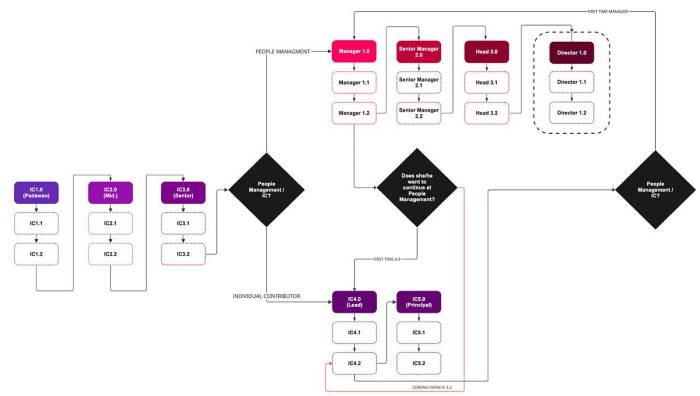
Unlocking career paths with a payroll diploma sets the stage for exploring exciting opportunities in the field. This in-depth guide will delve into the various aspects of payroll diplomas, from understanding the different types and curricula to examining potential career paths and the benefits of pursuing this valuable certification. We’ll also explore essential skills, real-world applications, program comparisons, career advancement opportunities, current industry trends, and resources for further learning.
Payroll diplomas offer a structured pathway to a rewarding career in a constantly evolving industry. The programs equip students with the technical skills and knowledge needed to excel in various payroll roles. This comprehensive exploration will illuminate the advantages, potential salary ranges, and necessary skill sets associated with different payroll career paths.
Introduction to Payroll Diplomas
A payroll diploma is a specialized credential that equips individuals with the knowledge and skills necessary to manage payroll processes. These programs cover a range of tasks, from calculating employee wages and taxes to processing payroll deductions and ensuring compliance with regulations. The specific scope of the diploma varies depending on the program’s level, from introductory certificates to advanced associate’s degrees.Payroll professionals are essential in any organization.
They play a critical role in ensuring accurate and timely payment of employee wages, while adhering to complex tax laws and regulations. A payroll diploma is a valuable stepping stone to a career in this field, providing the fundamental knowledge and practical skills for success.
Types of Payroll Diplomas
Payroll diplomas come in various forms, reflecting different levels of expertise and educational commitments. These include certificates, associate’s degrees, and potentially even bachelor’s degrees in specific areas related to accounting or finance. A certificate program provides a foundational understanding of payroll, while an associate’s degree delves deeper into the subject matter, often including more advanced topics like financial accounting.
Curriculum of a Payroll Diploma Program
A typical payroll diploma program covers a range of subjects, combining theoretical knowledge with practical application. Core subjects often include payroll calculations, tax laws and regulations, employee deductions, payroll software, and compliance procedures. Many programs include hands-on training through case studies and practical exercises, giving students real-world experience.
Comparison of Payroll Diploma Programs
| Feature | Certificate Program | Associate’s Degree Program |
|---|---|---|
| Program Length | Typically 6-12 months | Typically 1-2 years |
| Cost | Generally $1,000 – $5,000 | Generally $5,000 – $15,000 |
| Curriculum Depth | Focuses on fundamental payroll principles | Covers advanced topics, including financial accounting and auditing |
| Career Opportunities | Entry-level payroll positions | Mid-level and supervisory payroll positions |
This table provides a general comparison. Actual program lengths and costs can vary significantly based on the institution, program specifics, and location. For instance, online programs might have different pricing models compared to in-person classes. Factors like the reputation of the institution and the specific focus of the program also influence the cost.
Benefits of Pursuing a Payroll Diploma
A payroll diploma can open doors to a rewarding and potentially lucrative career in the ever-important field of finance. It equips individuals with the specialized knowledge and skills needed to navigate the complexities of payroll processing, ensuring accuracy and compliance with ever-changing regulations. This detailed exploration will highlight the key advantages of obtaining a payroll diploma, emphasizing its impact on earning potential, career advancement, and job security.The value of a payroll diploma extends beyond simply acquiring a credential.
It represents a demonstrable commitment to professional development, a skill set in high demand, and an investment in a career path with solid potential for growth and stability.
Increased Earning Potential
Payroll professionals with specialized training often command higher salaries than those in similar roles without a diploma. The specialized knowledge and expertise acquired through a payroll diploma are highly sought after by employers. This often translates to a significant increase in earning potential, sometimes exceeding the salary of a general accounting clerk or administrative assistant. For example, a recent survey by the American Payroll Association revealed that payroll professionals with a payroll diploma earned an average of 15% more than their counterparts without the specialized certification.
This disparity reflects the value employers place on professionals possessing in-depth knowledge of payroll procedures, tax regulations, and compliance requirements.
Career Advancement and Promotion Opportunities
A payroll diploma serves as a springboard for career advancement. Employers frequently recognize the value of a specialized payroll diploma when considering promotions and opportunities for career growth. Individuals with a payroll diploma often find themselves in positions of greater responsibility and leadership, such as payroll supervisor, team leader, or even senior payroll analyst. This progression demonstrates the direct link between specialized training and career advancement.
Employees with payroll diplomas are often better equipped to handle complex situations, ensuring accuracy and compliance, making them more attractive candidates for advancement.
Enhanced Job Security
The demand for qualified payroll professionals remains consistent, even in fluctuating economic climates. This consistency in demand translates to greater job security for those with a payroll diploma. Payroll functions are crucial for any business, making it a relatively recession-proof field. In addition to this, payroll specialists are often instrumental in maintaining the financial health of a company, highlighting the significance of their role in ensuring smooth operations.
This makes payroll specialists a valuable asset in any organization, contributing to their job security and future prospects.
Essential Skills Developed Through a Payroll Diploma
A payroll diploma equips individuals with a strong foundation in financial management and administrative procedures. Beyond the technical skills, these programs foster critical thinking, communication, and problem-solving abilities, making graduates highly sought-after in various industries. These skills are not limited to payroll; they are transferable and contribute significantly to career success.
Unlocking career paths with a payroll diploma can be incredibly rewarding, especially in today’s evolving job market. Think about how vital data management is becoming, even in seemingly unrelated fields like payroll processing. Companies like Dell are diving deep into the data center market dell dives deep into data center market , which further highlights the need for skilled professionals with a solid understanding of financial systems.
This emphasis on data and technology underscores the continued importance of a payroll diploma in opening doors to exciting new opportunities.
Technical Skills
Payroll processing is a complex area involving numerous regulations and procedures. Payroll diploma programs emphasize hands-on training, enabling graduates to master software applications, understand tax laws, and perform accurate calculations. These technical skills are invaluable, but the diploma’s true strength lies in the broader skillset it cultivates.
- Mastering Payroll Software: Students learn to navigate and utilize payroll software, such as ADP, Paychex, or QuickBooks. This expertise is highly sought after in the job market.
- Tax Law Compliance: Payroll professionals are responsible for staying abreast of tax laws and regulations. Payroll diplomas cover current tax codes and regulations, ensuring compliance and minimizing errors.
- Data Entry and Accuracy: Payroll involves meticulous data entry and calculation. The diploma program stresses the importance of accuracy and efficiency in handling financial data.
- Understanding Employee Benefits: A critical aspect of payroll involves understanding and processing employee benefits, including health insurance, retirement plans, and other perks. The diploma program provides insight into these various benefit structures.
Interpersonal Skills
Effective communication and teamwork are essential in a payroll environment, where professionals interact with employees, managers, and clients. Payroll diplomas emphasize the development of strong interpersonal skills.
- Communication Skills: Clear and concise communication is crucial for explaining payroll procedures, addressing queries, and resolving issues effectively. Payroll diploma programs emphasize written and verbal communication skills.
- Problem-Solving Abilities: Payroll professionals frequently encounter complex issues requiring critical thinking and problem-solving skills. The diploma program provides practical exercises to hone these abilities.
- Time Management and Organization: Payroll tasks often involve strict deadlines and multiple responsibilities. The diploma program emphasizes time management and organizational skills, ensuring efficient workflow.
- Teamwork and Collaboration: Payroll is often a collaborative process, requiring effective teamwork and collaboration. Payroll diploma programs emphasize group projects and activities to foster these skills.
Transferable Skills
The skills learned in a payroll diploma program extend far beyond the realm of payroll. These skills are highly transferable and applicable in diverse career paths.
- Attention to Detail: Payroll demands precision and attention to detail. This skill is valuable in any field requiring accuracy and meticulousness, such as accounting, finance, or quality control.
- Analytical Skills: Payroll involves analyzing data, identifying trends, and making informed decisions. These analytical skills are transferable to various analytical roles.
- Organizational Skills: The ability to manage tasks, prioritize, and organize information is crucial in payroll. These skills are valuable in any administrative role.
- Customer Service Skills: Payroll professionals often interact with employees, addressing their concerns and providing support. These customer service skills are transferable to roles involving client interaction and support.
Contribution to a Successful Career
A payroll diploma equips individuals with a strong skillset, enabling them to contribute effectively to a successful career. The combination of technical expertise and interpersonal skills provides a competitive edge in the job market.
- Increased Employability: Graduates of payroll diploma programs possess a specific skillset highly sought after in the job market.
- Enhanced Career Opportunities: The skills developed through the diploma program can open doors to various career opportunities in the financial and administrative sectors.
- Career Advancement: The skills learned in the diploma program can be leveraged to advance within a company or seek new career opportunities.
- Improved Job Satisfaction: Payroll professionals who possess a strong skillset are better equipped to handle challenges and responsibilities, leading to greater job satisfaction.
Practical Application of Payroll Diploma Knowledge
A payroll diploma equips individuals with the fundamental knowledge and skills needed to navigate the complexities of payroll processing. This knowledge extends beyond basic calculations; it encompasses the legal, regulatory, and procedural aspects essential for accurate and compliant payroll management. This section dives into real-world scenarios, showcasing how these skills are applied, and explores the role of a payroll professional in various business structures.
Real-World Payroll Scenarios
Payroll professionals regularly encounter a variety of situations requiring careful attention to detail and a thorough understanding of relevant laws and regulations. These scenarios often involve handling employee changes, tax adjustments, or complex compensation structures. Accurate and timely processing is crucial, as payroll errors can lead to significant financial and legal issues.
Case Studies of Successful Payroll Professionals
Many successful payroll professionals leverage their knowledge to drive efficiency and accuracy within their organizations. Their expertise ensures compliance with labor laws and minimizes potential risks associated with payroll errors. They consistently seek opportunities to enhance their skills and stay informed about evolving regulations, demonstrating a commitment to excellence and a deep understanding of the profession.
Handling a Payroll Issue: Employee Termination
A common payroll issue arises when an employee is terminated. The payroll professional must accurately calculate the final pay, including accrued vacation time, and ensure all relevant deductions are processed correctly. This includes correctly calculating the final paycheck amount, applying any applicable severance pay, and adjusting the employee’s record within the payroll system. The process also involves confirming the employee’s final bank details and completing all necessary paperwork for compliance.
Managing Payroll in Different Business Structures
| Business Structure | Payroll Management Considerations |
|---|---|
| Sole Proprietorship | Payroll is simpler, often handled directly by the owner, but still requires adherence to tax regulations and accurate record-keeping. |
| Partnership | Payroll involves calculating individual partner distributions and considering partnership tax implications. Collaboration and communication among partners are essential for accurate and compliant payroll. |
| Corporation | Payroll is more complex due to the legal separation of the business entity from its owners. Payroll must adhere to corporate tax regulations and maintain detailed records of employee compensation and benefits. |
The complexity of payroll management varies significantly depending on the business structure. Each structure has unique requirements and considerations that a payroll professional must understand to ensure compliance and accurate processing.
Unlocking career paths with a payroll diploma can be a game-changer, but even with the right skills, navigating challenging conversations with employees is crucial. Understanding how managers can stumble in these situations, as outlined in this insightful article about mistakes managers make when having difficult conversations , can significantly impact your success in any role, from entry-level to senior positions.
Ultimately, a solid foundation in payroll, combined with effective communication, will pave the way to greater opportunities.
Comparing Payroll Diploma Programs

Choosing the right payroll diploma program is crucial for a successful career. Different programs offer varying levels of training, resources, and support, impacting your future employment prospects. Careful consideration of factors like program accreditation, format, and financial aid opportunities will help you make an informed decision.
Factors to Consider When Choosing a Program
Selecting a payroll diploma program requires careful evaluation. Program reputation and accreditation are essential indicators of quality. A reputable program often boasts experienced instructors, strong industry connections, and a proven track record of success. Accreditation validates the program’s standards and ensures it meets industry requirements. Location, program format (online or in-person), and the cost of tuition and associated fees also play a significant role.
Availability of financial aid and scholarships can greatly reduce the financial burden of pursuing a diploma.
Program Formats: Online vs. In-Person
Different program formats cater to various learning styles and schedules. Online programs offer flexibility, allowing students to learn at their own pace and from anywhere with an internet connection. In-person programs provide opportunities for in-class interaction, hands-on learning, and networking with peers and instructors. Consider your learning style, schedule, and personal preferences when choosing between these formats.
Financial Aid and Scholarships
Many institutions offer financial aid and scholarship opportunities to students pursuing payroll diplomas. These programs often provide grants, loans, and scholarships based on academic merit, financial need, or specific program criteria. Researching and applying for available aid can significantly alleviate the financial strain of pursuing a diploma. This research should include the application process, eligibility criteria, and the types of aid available from the institution and external sources.
Comparison Table of Payroll Diploma Programs
| Program | Location | Format | Accreditation | Estimated Cost |
|---|---|---|---|---|
| ABC Payroll Diploma Program (Institution A) | Online | Online | Accredited by XYZ | $3,500 |
| DEF Payroll Diploma Program (Institution B) | Local Campus | In-person | Accredited by ABC | $5,000 |
| GHI Payroll Diploma Program (Institution C) | Online/Hybrid | Hybrid | Accredited by XYZ and other relevant bodies | $4,200 |
Note: This table provides a sample comparison. Actual costs, locations, and accreditation may vary. Always verify the specific details of each program directly with the institution. Additional factors like program duration, faculty expertise, and career services offered should also be carefully considered. Program cost should not be the only deciding factor.
Career Advancement Opportunities
A payroll diploma is more than just a credential; it’s a springboard to a fulfilling and potentially lucrative career. This section explores how a payroll diploma can pave the way for more advanced roles, highlighting the specific career paths it unlocks and the qualifications needed to excel in those positions. It also presents a structured plan to guide your professional growth within the payroll field.Successfully navigating the complexities of payroll requires a solid foundation of knowledge and practical skills.
A payroll diploma provides that foundation, enabling graduates to transition into more demanding roles and take on greater responsibilities. This often involves developing a deeper understanding of the laws, regulations, and technological advancements within the payroll industry.
Career Paths Building on Payroll Diploma Knowledge
A payroll diploma equips individuals with the fundamental knowledge to pursue a variety of rewarding careers. These paths often involve progressively increasing responsibilities and skill sets.
- Payroll Specialist to Senior Payroll Specialist: Moving from a specialist role to a senior role typically involves handling more complex payroll issues, overseeing multiple payroll cycles, and taking on greater levels of responsibility for the accuracy and timeliness of the process. This often requires developing expertise in specific industries or regulatory environments.
- Payroll Supervisor to Payroll Manager: Supervisory roles in payroll often entail overseeing teams, training staff, and resolving employee concerns. A Payroll Manager’s responsibilities may encompass budget management, process optimization, and system implementation, requiring a strategic approach to payroll operations.
- Payroll Analyst to Payroll Consultant: An analyst role often focuses on identifying trends, improving processes, and analyzing data to enhance efficiency and accuracy. A consultant’s role goes beyond the confines of a single company; it involves providing expertise to multiple clients, often with diverse payroll needs. This typically demands advanced knowledge of tax regulations, accounting principles, and a keen eye for detail.
Qualifications for Advanced Payroll Roles
Progression within the payroll field necessitates the development of specific skills and qualifications beyond the fundamental knowledge gained from a diploma.
Unlocking career paths with a payroll diploma is a smart move, especially in today’s job market. While all eyes are on Carrier IQ following recent spyware allegations, this incident doesn’t diminish the value of a solid payroll background. A diploma in payroll management opens doors to various roles, from entry-level clerk to senior analyst, offering a stable and rewarding career.
- Technical Proficiency: Advanced roles often demand expertise in payroll software and systems. Familiarity with various payroll software packages and a working knowledge of relevant accounting and financial software are essential for success.
- Analytical Skills: The ability to analyze data, identify trends, and resolve complex payroll issues is crucial. This involves using analytical tools to understand payroll data, uncover errors, and develop proactive solutions.
- Communication and Interpersonal Skills: Excellent communication skills are essential for interacting with employees, management, and other stakeholders. This includes the ability to explain complex payroll information clearly and concisely.
- Problem-Solving and Decision-Making Abilities: Advanced payroll roles require individuals to identify, analyze, and resolve problems effectively. The ability to make sound judgments and decisions under pressure is critical.
- Industry Knowledge and Compliance Expertise: Staying abreast of changes in payroll regulations and industry best practices is vital. A strong understanding of tax laws, employment laws, and industry-specific payroll requirements is necessary.
A Structured Plan for Career Progression
A structured approach to career advancement in payroll can significantly enhance your professional development.
- Continuous Learning: The payroll field is constantly evolving. Staying updated with industry trends, new regulations, and emerging technologies is crucial.
- Networking and Professional Development: Connecting with professionals in the field and attending industry events or workshops can provide valuable insights and opportunities.
- Seek Mentorship: A mentor can provide guidance and support as you navigate your career path.
- Specialization: Focusing on a specific area within payroll, such as government payroll or international payroll, can enhance your expertise and open doors to specialized roles.
- Demonstrate Initiative and Proactiveness: Taking initiative and seeking opportunities to learn new skills and take on greater responsibilities will help you stand out.
Current Trends in Payroll
The payroll industry is constantly evolving, driven by technological advancements and shifting workforce dynamics. Understanding these trends is crucial for anyone pursuing a career in payroll, as it allows them to adapt to the changing landscape and remain competitive. This section explores the current and future developments impacting payroll processes, focusing on the role of technology, automation, and AI.Payroll professionals are no longer just focused on processing paychecks; they’re now integral to the overall financial health and operational efficiency of organizations.
The increasing complexity of employment regulations, coupled with the need for real-time data and reporting, demands a sophisticated approach to payroll management.
Impact of Technology on Payroll Processes
Technological advancements have significantly altered payroll processes, improving efficiency, accuracy, and compliance. Payroll software and cloud-based platforms have become essential tools for managing employee data, calculating wages, and distributing payments. This shift towards digital solutions has streamlined workflows, reduced manual errors, and provided enhanced transparency.
Examples of New Payroll Technologies, Unlocking career paths with a payroll diploma
Several innovative technologies are reshaping the payroll landscape. Mobile payroll apps enable employees to access their pay stubs and manage their benefits on their smartphones. Automated time and attendance systems accurately track employee hours, eliminating manual data entry and reducing potential errors. Integrated HR platforms connect payroll with other HR functions, providing a holistic view of employee information and streamlining administrative tasks.
Automation and AI in Payroll
Automation and artificial intelligence (AI) are transforming payroll functions by automating repetitive tasks. AI-powered systems can analyze employee data, identify potential errors, and suggest improvements in payroll procedures. Robotic Process Automation (RPA) is being used to automate tasks such as data entry, report generation, and compliance checks. This allows payroll professionals to focus on higher-level strategic initiatives, such as optimizing payroll processes and ensuring compliance with evolving regulations.
For example, AI algorithms can flag potential errors in data entry, such as incorrect hours or deductions, before they lead to significant issues.
Future Developments in Payroll
The future of payroll is likely to be even more intertwined with technology. Expect further integration with other HR systems and tools, enhancing the overall employee experience. Increased use of predictive analytics to anticipate potential payroll issues, such as salary discrepancies or compliance risks, is another area of growth. Real-time data access and reporting will become more commonplace, allowing for quicker and more informed decision-making.
Specific Trends in Global Payroll
The global nature of many businesses requires payroll professionals to understand international regulations and compliance requirements. The need for cross-border payroll processing is increasing, requiring expertise in handling different currencies, tax regulations, and legal requirements. This demands a comprehensive understanding of international labor laws and payroll practices in different jurisdictions. For example, a company with employees in multiple countries must ensure that payroll is processed according to the specific tax laws and regulations of each location.
Resources for Further Learning: Unlocking Career Paths With A Payroll Diploma

Unlocking your payroll career potential requires ongoing learning and networking. This section provides valuable resources to help you delve deeper into the field and connect with industry professionals. Whether you’re looking to advance your knowledge or find a job, these resources will be invaluable.
Reliable Resources for Payroll Diploma Information
Numerous resources provide detailed information on payroll diplomas and related career paths. These sources offer insights into program structures, curriculum, and potential career outcomes. Thorough research into these resources will provide a clearer understanding of the various options available.
- Government websites (e.g., Department of Labor): These sites often provide information on job market trends, career guidance, and educational resources. Specific resources might include data on payroll-related job openings and required skills.
- Professional organizations: Industry-specific organizations, like the American Payroll Association (APA), offer detailed information on payroll best practices, certifications, and career development opportunities. These organizations often publish articles, white papers, and other materials that can deepen your understanding of the field.
- Online educational platforms: Platforms like Coursera, edX, and LinkedIn Learning offer a variety of payroll-related courses and tutorials. These platforms provide a structured approach to learning, often incorporating practical exercises and real-world scenarios.
Payroll Organizations and Associations
Networking with professionals in the payroll field can significantly enhance your career prospects. These associations offer valuable connections, resources, and opportunities to grow your knowledge.
- American Payroll Association (APA): A leading organization for payroll professionals, the APA provides certifications, resources, and networking opportunities for payroll specialists and managers. Their website offers a wealth of information on industry standards, current trends, and job market insights.
- State Payroll Associations: Many states have their own payroll associations. These groups often offer specialized knowledge relevant to the local job market and regulations. They can be an excellent resource for understanding state-specific payroll requirements.
Online Courses and Resources
Online learning platforms provide a flexible and accessible way to expand your knowledge in the payroll field. These resources offer a wide range of topics and levels, from introductory concepts to advanced techniques.
- Online Courses: Platforms like Coursera, edX, and LinkedIn Learning often feature specialized payroll courses that provide a structured curriculum, practice exercises, and potentially industry-recognized certifications. These courses can help you develop essential skills and knowledge needed for a successful career in payroll.
- Webinars and Workshops: Many organizations and associations host webinars and workshops on various payroll topics. These sessions can provide valuable insights from experienced professionals and help you stay up-to-date with the latest trends in payroll practices. These can be a great way to supplement your learning.
Finding a Payroll Job
Finding a suitable payroll job requires proactive effort and a well-structured approach. The key is to align your skills and experience with the requirements of specific roles.
- Job Boards: Utilize specialized job boards for payroll positions, like those found on professional networking sites or industry-specific job portals. These boards often feature openings that align with the skills and experience you’ve gained.
- Networking: Networking events and professional organizations offer valuable opportunities to connect with potential employers and learn about open positions. Actively participating in industry events and engaging with payroll professionals can open doors to job opportunities.
- Company Websites: Many companies that require payroll specialists post openings directly on their career pages. Regularly checking these websites can yield relevant job listings. This direct approach can often lead to quicker and more direct recruitment processes.
Last Recap
In conclusion, unlocking career paths with a payroll diploma opens doors to a fulfilling and potentially lucrative career. The skills and knowledge gained through these programs are highly transferable, making them a valuable asset in various industries. With a growing demand for skilled payroll professionals and a plethora of career advancement opportunities, a payroll diploma is a strategic investment for individuals seeking to enhance their job prospects and build a successful future.






